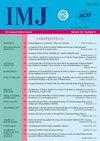FEATURES OF PSYCHO-EMOTIONAL ADAPTATION DURING PREPARING TO RADIOTHERAPY
Q4 Medicine
引用次数: 0
Abstract
Radiation therapy is a mandatory treatment tactic in almost 70 % of cancer patients, including those of head and neck, accounting for about 15−20 %. The radiotherapy prescribing causes certain complications in patients, so its need increases the level of anxiety and stress, forms a pessimistic perception of the prospects of anticancer treatment. An additional stressor is also the myths about radiation therapy, which can provoke the refusal of treatment. Therefore, an important task of medical care at the stage of radiation treatment is not only psychocorrection of the emotional sphere, but also correction of cognitive distortions, psychoeducation, the formation of a satisfactory therapeutic alliance and commitment to therapy. To study the features of psycho−emotional adaptation in preparation for radiation therapy in the patients with head and neck cancer, 60 patients were examined. To determine the psycho−emotional status of cancer patients there were used a clinical method (survey, collection of complaints and anamnestic data), a test of differentiated self−assessment of the functional state "Feeling, activity, mood", the method of "Distress Thermometer". It was found that during the procedures of radiation therapy in 90 % of patients the rate of distress increased and positively correlated with the test "Feeling, activity, and mood". The average indices of psycho−emotional state according to all scales of the test "Feeling, activity, mood" decreased. Criteria for adaptation to radiation therapy were identified: compliance with the basic rules and requirements related to nutrition, hygiene, keeping the regimen; timely and qualitatively informing the doctor about changes in the patient's condition; quality of relationships with staff. It is concluded that the need for psychocorrectional work at the stage of the course of radiation therapy with the selection of the main targets for psychotherapeutic interventions. Key words: psychoemotional adaptation, psychooncology, head and neck cancer, radiation therapy.放疗前心理情绪适应的特点
放疗是近70%癌症患者的强制性治疗策略,其中头颈部患者约占15 - 20%。放疗处方给患者带来了一定的并发症,因此其需求增加了患者的焦虑和压力水平,形成了对抗癌治疗前景的悲观看法。另一个压力源是关于放射治疗的神话,这可能会引起拒绝治疗。因此,放射治疗阶段医疗保健的重要任务不仅是情绪领域的心理矫正,还要纠正认知扭曲,进行心理教育,形成满意的治疗联盟并承诺治疗。本文对60例头颈部肿瘤患者放射治疗前的心理-情绪适应特征进行了研究。采用临床调查法、主诉和记忆资料收集法、“感觉、活动、情绪”功能状态差异化自我评价法、“痛苦温度计”法确定癌症患者的心理情绪状态。研究发现,90%的患者在放射治疗过程中,痛苦率增加,并与“感觉、活动和情绪”测试呈正相关。“感觉、活动、情绪”各量表的平均心理情绪状态指数均下降。确定了适应放射治疗的标准:遵守与营养、卫生、保持治疗方案有关的基本规则和要求;及时、定性地告知医生患者病情的变化;与员工关系的质量。结论在放射治疗过程阶段需要进行心理矫正工作,并选择心理治疗干预的主要目标。关键词:心理情绪适应;心理肿瘤学;头颈部肿瘤;
本文章由计算机程序翻译,如有差异,请以英文原文为准。
求助全文
约1分钟内获得全文
求助全文
来源期刊

International Medical Journal
医学-医学:内科
自引率
0.00%
发文量
21
审稿时长
4-8 weeks
期刊介绍:
The International Medical Journal is intended to provide a multidisciplinary forum for the exchange of ideas and information among professionals concerned with medicine and related disciplines in the world. It is recognized that many other disciplines have an important contribution to make in furthering knowledge of the physical life and mental life and the Editors welcome relevant contributions from them.
The Editors and Publishers wish to encourage a dialogue among the experts from different countries whose diverse cultures afford interesting and challenging alternatives to existing theories and practices. Priority will therefore be given to articles which are oriented to an international perspective. The journal will publish reviews of high quality on contemporary issues, significant clinical studies, and conceptual contributions, as well as serve in the rapid dissemination of important and relevant research findings.
The International Medical Journal (IMJ) was first established in 1994.
 求助内容:
求助内容: 应助结果提醒方式:
应助结果提醒方式:


